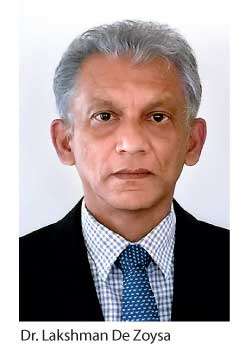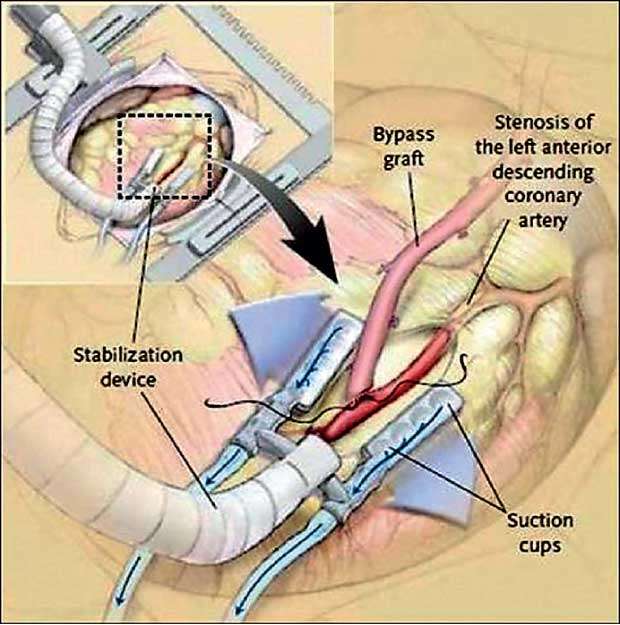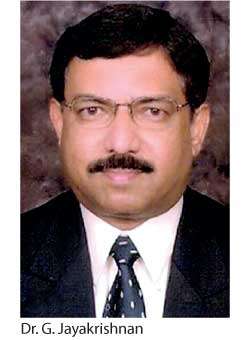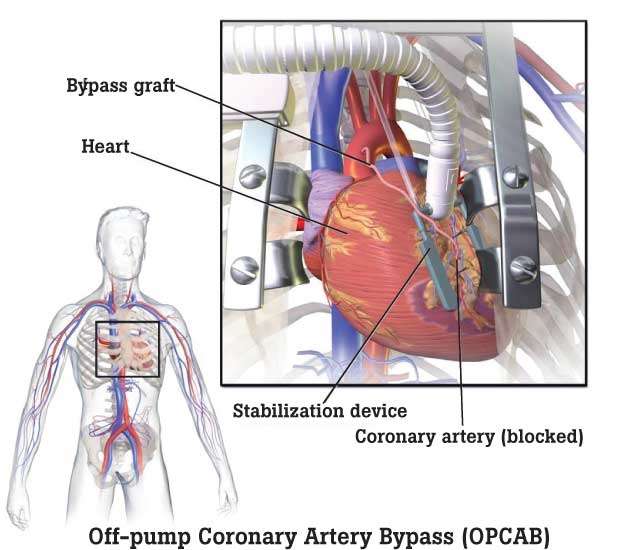31 Jan 2019 - {{hitsCtrl.values.hits}}
This year marks two decades of off-pump coronary artery bypass surgery in Sri Lanka. The initial surgery of this kind was performed in Sri Lanka in February 1999 at the Nawaloka Hospital by Dr. G. Jayakrishnan and Dr. Lakshman De Zoysa.
 Like all body organs the human heart too needs an adequate supply of blood. The heart gets its own blood supply via blood vessels called the ‘coronary arteries’. The blockage in these arteries reduces the amount of blood reaching the heart. The inadequate blood supply to the heart, compromises on the capacity of the heart to function efficiently. This condition usually leads to angina (chest pain or discomfort caused by an oxygen deprivation to the heart muscles) or heart attacks (death of cardiac muscle caused by lack of blood supply, oxygen and nutrients) and could subsequently
Like all body organs the human heart too needs an adequate supply of blood. The heart gets its own blood supply via blood vessels called the ‘coronary arteries’. The blockage in these arteries reduces the amount of blood reaching the heart. The inadequate blood supply to the heart, compromises on the capacity of the heart to function efficiently. This condition usually leads to angina (chest pain or discomfort caused by an oxygen deprivation to the heart muscles) or heart attacks (death of cardiac muscle caused by lack of blood supply, oxygen and nutrients) and could subsequently  lead to a fatal outcome.
lead to a fatal outcome.
Surgery is sometimes the preferred option in terms of treatment for heart disease caused by blocked coronary arteries. It is performed to restore the blood supply to the heart. Such operations create an alternative path for the blood to flow, by-passing the blocked coronary artery. Successful surgery will restore the blood supply to the deprived area of the heart.
Heart surgery is usually performed while the heart is stopped from beating and the patient is connected to a heart lung machine. A heart-lung machine, also called a cardiopulmonary bypass machine, then takes over the function of the heart and lungs during the surgery. It basically has a pump to function like the heart to keep the oxygen-rich blood flowing through the entire body. An oxygenator performs the function of the lungs which is to oxygenate the blood. Thus the heart-lung bypass machine maintains life despite the lack of a beating heart and allows surgery to be performed on a non beating heart on a patient who is still alive.
An alternative way of doing the bypass surgery is not to use the heart-lung bypass machine. During such an operation the procedure takes place while the patient’s heart is still beating. This method of heart surgery is called off-pump coronary artery bypass, or OPCAB.
Off-pump coronary artery bypass or ‘beating heart’ surgery (OPCAB) is a form of heart surgery that is performed on the beating heart, while it continues to function. The movement of the area of the heart that is being operated, is restricted by using a mechanical stabilization system consisting of a heart positioner that guides and holds the heart in a position suitable for the operation, and a tissue stabilizer holds still a small area of the heart. In such a situation the heart is still beating while the graft attachments are made to bypass a blockage of the coronary arteries. This method has over the years gained wide acceptance as a valid alternative to conventional CAB with a stopped heart.

Health Statistics indicate that currently in Sri Lanka, the number of patients suffering from coronary artery heart disease is on the rise. It could be that with patient awareness and the availability of medical investigation facilities more people are being diagnosed. The fact that heart disease in the community is on the rise could also be attributed to people’s food habits and lifestyles. With the increasing prevalence of heart disease, the number of patients referred for heart surgery has also increased over the years.
Heart surgery is usually performed while the heart is stopped from beating and the patient is connected to a heart lung machine. A heart-lung machine then takes over
 In OPCAB there is no need for a heart lung machine and a technician to operate. There is also no need for plastic disposable tubing, oxygenator and a standby power supply. Hence it is cost effective. Saving time is another factor to consider, as it also takes less time for surgery to be done.
In OPCAB there is no need for a heart lung machine and a technician to operate. There is also no need for plastic disposable tubing, oxygenator and a standby power supply. Hence it is cost effective. Saving time is another factor to consider, as it also takes less time for surgery to be done.
Some believe that cardiopulmonary bypass causes a post-operative cognitive decline and memory problems in certain patients, which is known as post-perfusion syndrome, informally called ‘pumphead’. Off-pump coronary artery bypass was developed partly to avoid the complications of cardiopulmonary bypass during cardiac surgery where the heart is stopped and a heart-lung machine takes over the work of the heart and lungs. `Off-pump surgery can be more technically challenging, However, It has a lot to offer the heart patients who need surgical intervention for their cardiac disease condition.
This method of performing cardiac surgery was primarily developed in the early 1990s and it was made available to the cardiac patients in Sri Lanka, thanks to the Management of the Nawaloka Hospitals, that made it possible to pioneering it in Sri Lanka by the British trained medical team comprising of Dr. G Jayakrishnan from India and Dr. Lakshman De Zoysa from Sri Lanka, practising in Canada at the time.
Today the majority of cardiac surgeries in Sri Lanka are performed using the off pump surgical procedure which is cost effective and beneficial to some patients in reducing the post-operative complications.

30 Nov 2024 2 hours ago
30 Nov 2024 4 hours ago
30 Nov 2024 5 hours ago
29 Nov 2024 29 Nov 2024
29 Nov 2024 29 Nov 2024